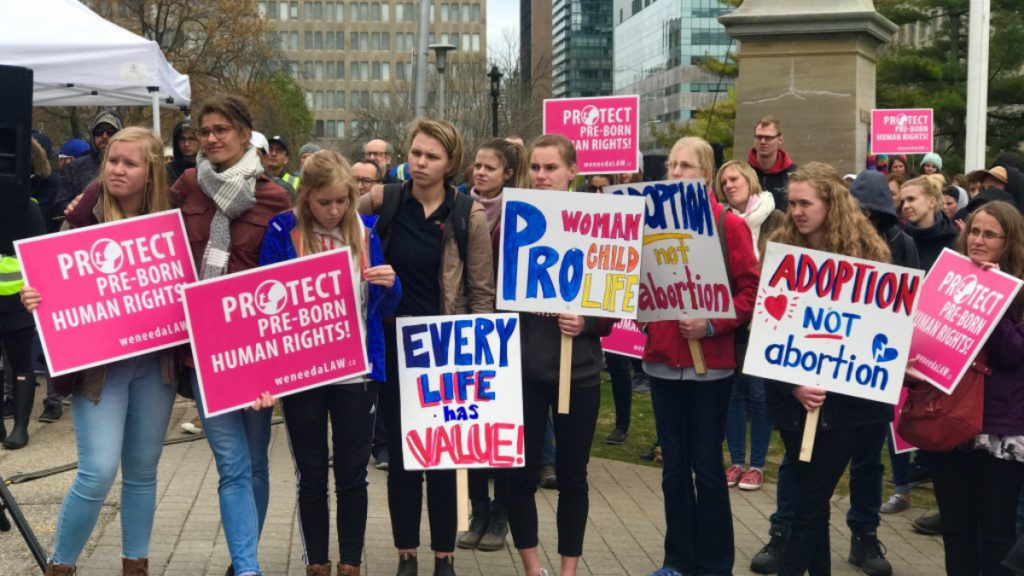Talia Battista, an undergraduate student at Toronto Metropolitan University, formerly known as Ryerson University, struggled with trauma from a past abusive relationship. She had discovered a campus event called “Self-Healing Through Yoga,” tailored for sexual-assault survivors, which she believed would help manage her therapy costs and connect her with fellow survivors. She was banned from the event, however, due to her pro-life views and activism on campus.
As the Ryerson leader of a pro-life group, Toronto Against Abortion, Battista had become a recognizable figure on campus for her regular outreach advocating for “pre-born human rights.” Her advocacy efforts, which involved images of aborted fetuses, took place along Gould Street, a busy downtown campus area. These activities often met resistance from the RSU employees and passersby, sometimes leading to confrontations over her materials.
Battista suspected her pro-life stance might be a barrier to her participation in RSU-led events, given her experience with another such program a few days prior. Upon her arrival, she was singled out due to her conflicting views on abortion. RSU had a long-standing pro-choice stance, effectively denying any pro-life student organization official status or access to university resources. This policy gave RSU leaders the authority to enforce these regulations, even if it might cause distress to students like Battista.
Battista was asked to leave the previous RSU event, a move she describes as unexpected in an environment intended to unite “students from different marginalized backgrounds.” Her removal led to a meeting with Tamara Jones, the union’s vice president of equity, and Corey Scott, the equity and campaigns organizer, to discuss her future participation in union-led events.
The RSU officials explained to Battista that due to the Union’s pro-choice stance, some participants felt uncomfortable expressing their thoughts in settings where pro-life sentiments might be present. The message conveyed was that the Union prioritized the comfort of their pro-choice community over inclusivity, further solidifying Battista’s understanding that her pain was undermined due to her political views.
